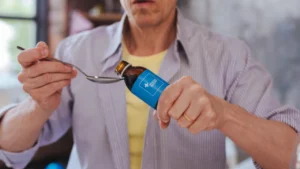Drug rehabilitation or in short drug rehab is a special facility set up with a set of programs and with medical professionals responsible for helping people struggling with addiction overcome.
A rehabilitation center is a physical facility that accommodates addicts who desire to overcome drug or alcohol addiction. Rehab center helps addicts overcome and lead normal lives. Rehab centers are of two main types; inpatient and outpatient. Depending on the addiction level, one can choose the most suitable one for themselves or for their kin.
Inpatient rehab
The other name for inpatient rehab is residual treatment. This is where the addict is exclusively in the facility during the treatment duration.
Inpatient rehab can be full or partial. Partial rehab is when the hospitalization takes a few days then the patient goes to the patient. It is a mix of both. Full inpatient is where the patient stays in the hospital throughout the duration.
Why would you choose inpatient?
There are several reasons why someone can choose inpatient rehab.
1. Underlying conditions
Some patients need special medical care because of age or other underlying conditions. This could be one of the reasons one can consider inpatient.
2. Age factor
The elderly face more challenges especially with the side effects of withdrawal. As such they are better in inpatient for better monitoring.
3. Time
Inpatient means you will commit your time and schedules to treatments. If your availability allows you can go for an inpatient.
Some activities that characterize inpatient rehab
- Assessment and treatment
- Exercising and fitness activities
- Spiritual care
- Group support
Advantages of inpatient rehab
-
Higher success rate
Being exclusively at the facility allows patients to focus on recovery will fewer distractions. Further, they are away from triggers and the company of friends. This increases the chances of recovery.
-
Support system
The medical practitioners and the staff inside the rehab provide a community of support to the addicts throughout the program.
-
Easier handling of withdrawal symptoms
Withdrawing from drugs has some side effects and when a patient is in-house symptoms like diarrhea, body aches, fever, etc. are handled easily.
Disadvantages of inpatient rehab
-
Financial support
Upon admission, if the addict was a parent they are not able to provide for their families as they seize to work and focus on their health.
-
Cost
In comparison to outpatient rehab, inpatient rehab is more costly
-
There is no guarantee of recovery
Just like in other rehab facilities, there is no guarantee of full recovery.
Outpatient rehab
Outpatient rehab is where a patient stays at home and goes for treatment at the facility as a day scholar.
How outpatient rehab works
There are various steps around how outpatient rehab works. At the end of the process, the patient overcomes addiction and the expectation is to leave a drug-free life.
1. Withdrawal and examination
The patient is put under zero use of the drugs they have been abusing. Their current and past medical history is also put into analysis for better medication.
2. Cognitive observation
This is where the mental, emotional, and behaviors are put into observation. Should there be any emergencies the medical practitioner handles them.
3. Prepare to change
This is where preparation is done for the patient to make them ready to change and lead a healthy and drug-free life.
4. Relapse
Drug relapse is when the patients go back to their old ways. In this case, the medics observe the potential and curb the possibility of occurrence.
5. Recovery
This is where the patient receives and needs support to lead a normal life and rejoin society. Observation and reconciliation are done with the family to ensure the relationship is restored fully.
Advantages of outpatient rehab
1. Flexibility
You are well able to continue with your day-to-day life while still attending the rehabilitation.
2. Cheaper
In comparison to inpatient rehab, this is cheaper considering you do not have to pay for accommodation and 24-hour support.
Disadvantages of outpatient rehab
1. Lack of 24-hour support
When under the outpatient program you do not have access to 24 hours support from medics and staff.
2. The intensity of the program
The balance between life and trying to overcome drug addiction may reduce the chances of having an intense program. As such the patient may not be able to focus on full-on healing.
The Cost of Rehab
The cost of rehab varies from one to another. Some rehabs are free while others are paid for. There are several factors that influence the cost of rehab. They include;
1. Type of treatment
Inpatient rehab may cost higher than outpatient because the patient is in the facility for 24 hours and receiving care throughout.
2. Medication
The drugs and facilities you use in the rehab may influence the entire cost. Some rehabs have amenities that cost higher than the rest.
3. Duration
The duration is also a determinant of the cost. Some rehabs charge per day and others per hour and this influences the price either upward or downward.
How to find a good rehab center
There are various ways in which you can get a good rehab. To begin with there are some questions that you can for ease of settling on the best.
Questions to ask a rehab center before you settle on one
- What other conditions do your treat besides addiction?
- Which medications do you offer in your treatment program?
- What is your rehab success rate?
- Are your medical practitioners having the necessary licensing?
- Do you accept medical insurance coverage?
- Does your drug treatment center have accreditation?
Other tips you can use to settle on the best rehab are;
1. Recommendations
You can look for a medical practitioner you can trust and ask them to recommend a good rehab for you. Additionally, you can go online and ask your networks to endorse a rehab that offers the best treatment
2. Check licensing
Licensing of rehab is done by the authority under the health care segment. You can look for rehab with the right accreditation and licensing.
3. Amenities
A good rehab should have amenities such as a detox center, therapy, gym, meditation park, etc. This gives the patients ample time to recover. Amenities are an important factor when choosing a rehab.
4. Cost of the program
The cost of the rehab will determine which one you can afford. You can compare and settle on the best in terms of costs and flexibility of payments.
How to convince someone to go to rehab
If you have a close friend, family or a colleague suffering from addiction, you can easily convince them to seek professional help.
Some of the ways you can use are to come up with a solid plan for the entire process, educate them on the importance of soberness, avoid discouraging comments, look for a professional to talk to them, etc.
Lastly, you do not have to wait until it is too late, help them seek help early before it is late.
Bottom line
There are questions surrounding whether you can force someone to go to rehab but before you forcefully enroll them you can try as much as you can to have them go voluntarily. Chances of success are better when someone decides to go to rehab as opposed to forcing your way.





